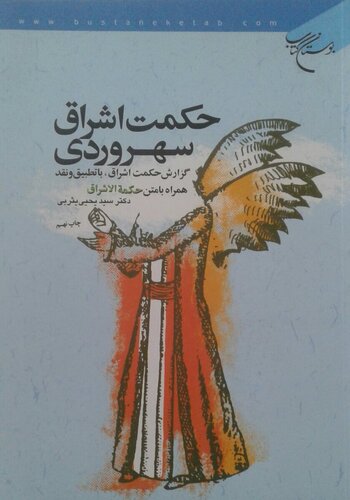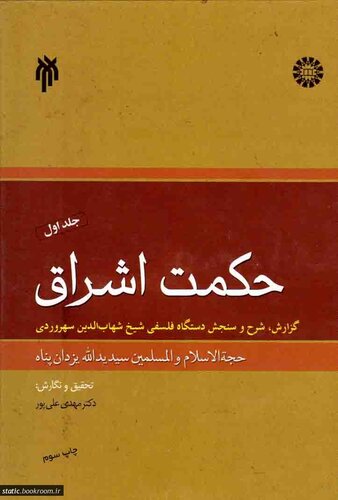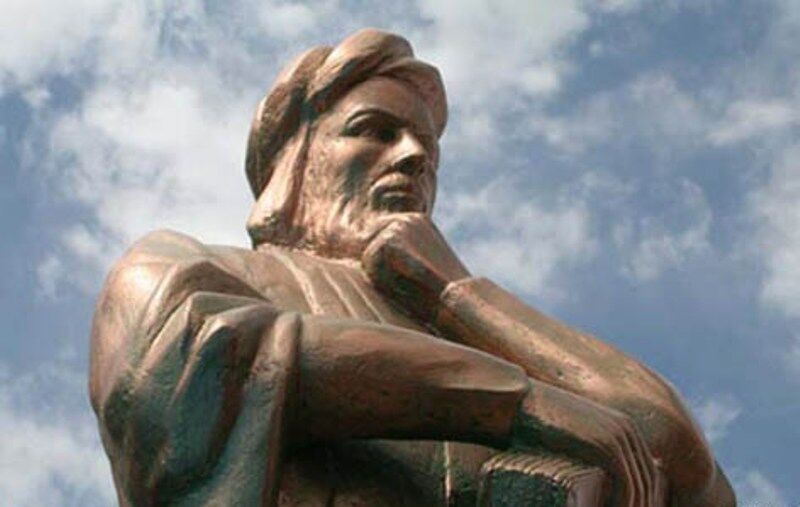According to historical sources, Sheikh Shahabaddin Suhrawardi was born in 549 AH and was killed in 587 AH. Suhrawardi is a Kurd from East Kurdistan and was born in the village of Sorvard or Surabard between Tikab and Zanjan. He established a new philosophy called Ishraqi philosophy as opposed to Aristotelian philosophy. He studied in Kurdistan, Maragheh, Baghdad, Iran, and Iraq and studied jurisprudence, philosophy, and theology in Kurdistan, Maragheh, Baghdad, Iran, and Iraq from the great scholars of that time such as Majdaddin Jili and Imam Fakhri Razi, who was himself one of the greatest thinkers of the Islamic world.
After traveling to Syria, Iraq, and Anatolia and learning some of the sciences of that time from each of the scholars, Suhrawardi returned to Iran and began to practice Sufism and mysticism from other scholars. After writing and publishing his thoughts as a great Sufi and mystic, he visited Syria, where King Zahir son of Sultan Salaheddin of Ayyubid liked him a lot, because of his knowledge and high rank. Salaheddin was a Kurd and one of the greatest Muslim leaders in the war against the Crusaders. He ruled in Egypt and his son ruled in Syria. Suhrawardi wrote the important book Hikmat-e-Ishraq in that city.
It is the first philosophical book in the entire Islamic world to be written on Ishraq and to stand up to classical philosophers and world philosophical foundations such as Aristotle and Plato.

In this book, Suhrawardi concludes that all beings in the world are created from light. Light and lights collide and their collision produces a larger ray. In his opinion, this collision of light is called "Ishraq" which means Shawq (shine) and that is why he is also known as "Sheikh Ishraq".
Sorvardi's philosophical theory was that the whole world is nothing but light. What is in the world now and what will be in the future is light. So, the world is nothing but the collision of lights and the realization of illumination and radiation. However, Suhrawardi believes that some of the lights are clear and some are dark. Some of the lights have their particles scattered and some of them have their particles gathered and compressed. Just as strong lights reflect dim lights, sometimes dim lights shine towards strong lights.
As Sheikh Ishraq says, human is no exception. Human is made of light, and it shines. Either the shine is strong or weak. The same person receives light from other people because one throws light on others and gets light from others too; therefore, it is called a source of light and is called "fayyaz" and can be the light to others and use their light for itself too.
This kind of view on human, the world, and the phenomena of the world is a very beautiful, humane, and psychological view because here human is not weak creature waiting for help from outside, but human is a source of energy, ability, and vision, which is light. Sheikh Ishraq is very realistic and knows that not all people have the same knowledge or mind. Therefore, they are not the same. They explain the world and its phenomena. Some people are full of light because they are filled with knowledge, so they lighten up the world، their surroundings, and others with their ability, learning, and knowledge. But in the meantime, there is an exchange of light. That is, someone is not forced to stay at one level forever. Both types of human beings can highlight each other's existence and knowledge and complement each other. Because it is the collision of light between weak and strong lights that causes radiation and illumination.

One of the differences between Shahabaddin Suhrawardi's philosophy and that of other nations is that it was mixed with mystical and psychological subjects and was influenced by famous people such as Zulnun Misri, Abdullah Tustar, Bayazid Bastami, Mansour Hallaj, and Abu Saeid Abulkhair who were all great Sufis and mystics. They, especially Mansour Hallaj, regarded humans as the source of everything and even elevated humans to the rank of divinity. That is why he was executed.
Unfortunately, the Kurdish Sheikh Ishraq was conspired against by the religious extremists of the time, although he was very popular with King Zahir, son of Salaheddin. He was loved, but because of the slander of his opponents, Salaheddin defamed him as an atheist and ordered his death. Kurdish King Zahir killed the great Kurdish philosopher against his will.
After Suhrawardi, many books, philosophical treatises, and intellectual stories were published. Finally, there is a Kurdish poem by Sheikh Shahabuddin Suhrawardi, known as Sheikh Shahid, published on page 128 of the book Zhinawari Zanayan Kurd, which shows his ability to use the Kurdish language and high poetry.









